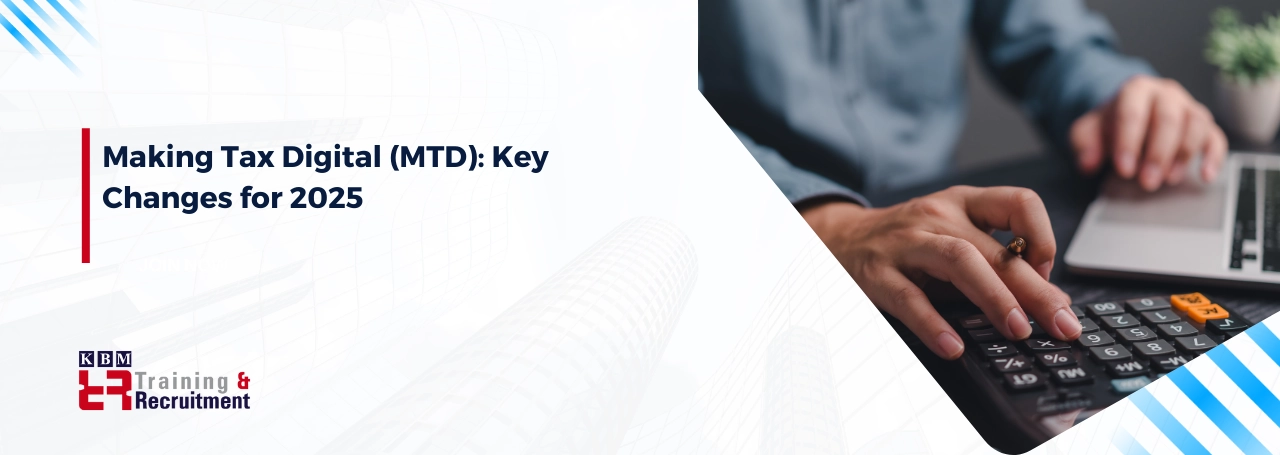The way people report taxes in the UK is changing. HMRC is moving forward with its digital strategy. The goal is to make tax reporting simpler and more accurate. In 2025, important updates will affect more taxpayers. These changes fall under the Making Tax Digital (MTD) programme.
If you are a landlord, self-employed, or run a business, it is time to get ready. You must understand the new rules and take steps now. Early preparation will help you avoid problems later. This article explores the key changes in MTD and what you need to do in 2025.
Who it affects
From April 2025, MTD will apply to more people. If you are a sole trader or landlord with income over £30,000, you must join. This rule expands the group that is already using MTD for VAT. Before 2025, only VAT-registered businesses had to comply. Now, many more taxpayers will need to report income digitally.
You must use software that links to HMRC. This software sends updates every quarter. That means four reports a year, plus a final statement. You will no longer send one tax return at the end of the year.
Quarterly updates
Quarterly updates are at the heart of MTD. Every three months, you will report income and expenses. The software adds up the totals. It sends them to HMRC on your behalf. This gives HMRC a clearer picture of your tax position all year round.
The goal is to reduce mistakes. If people report early and often, they are less likely to miss something. This helps HMRC and the taxpayer. But it also means you must stay on top of your finances.
Digital records
MTD rules require digital record-keeping. Paper records will no longer meet the standard. You must record all income and expenses using MTD-compatible software. This includes rent from property, sales from your business, and other taxable income.
Your software must keep digital links between your records and the reports you send. You cannot copy and paste figures manually. The system must track the journey from your data to your submission.
Choosing software
HMRC provides a list of approved software for MTD. You can choose the one that fits your requirements. Some are free, while others charge a fee. Many popular accounting tools already support MTD. If you are unsure, speak to an accountant.
The software must send updates to HMRC and store your records. It should also prepare your end-of-period statement. This final step confirms your total income and tax due.
Penalties for non-compliance
HMRC is also reforming its penalty system. If you don't comply with the MTD rules, you'll be given points. A point is incurred for each missed report. When you've accumulated a certain number of points, you'll be fined. This is a more flexible system but keeps you on your toes nonetheless.
Late payments also incur interest charges. These can spiral rapidly. That is why planning and computer tools are so valuable. They remind you and lower the chances of late filing.
Getting ready now
2025 may seem far off, but time moves fast. You should start preparing now. If you already use accounting software, check if it supports MTD. If you still use spreadsheets or paper, now is the time to change.
Talk to your accountant about the changes. Ask them what steps you need to take. They can help you choose software, set up your records, and meet deadlines. You will feel more confident once you start.
Benefits of MTD
MTD brings more than just rules. It can help you stay in control of your finances. You can see your earnings in real-time. You can track expenses easily. This helps you make better business decisions.
Digital tools also save time. They reduce the need for paperwork. You spend less time on admin and more time running your business. Over time, you may even save money on tax errors.
Final thoughts
Making Tax Digital is a big step in the UK's tax system. The 2025 changes will bring more people into the programme. If you are a landlord or sole trader, you must take action soon. Start using digital records and submit quarterly reports.
MTD is not simply about compliance. It is about doing things better in terms of managing your finances. Make use of the tools and seek help if you need it. With the right configuration, you will find the change easier than anticipated.






















